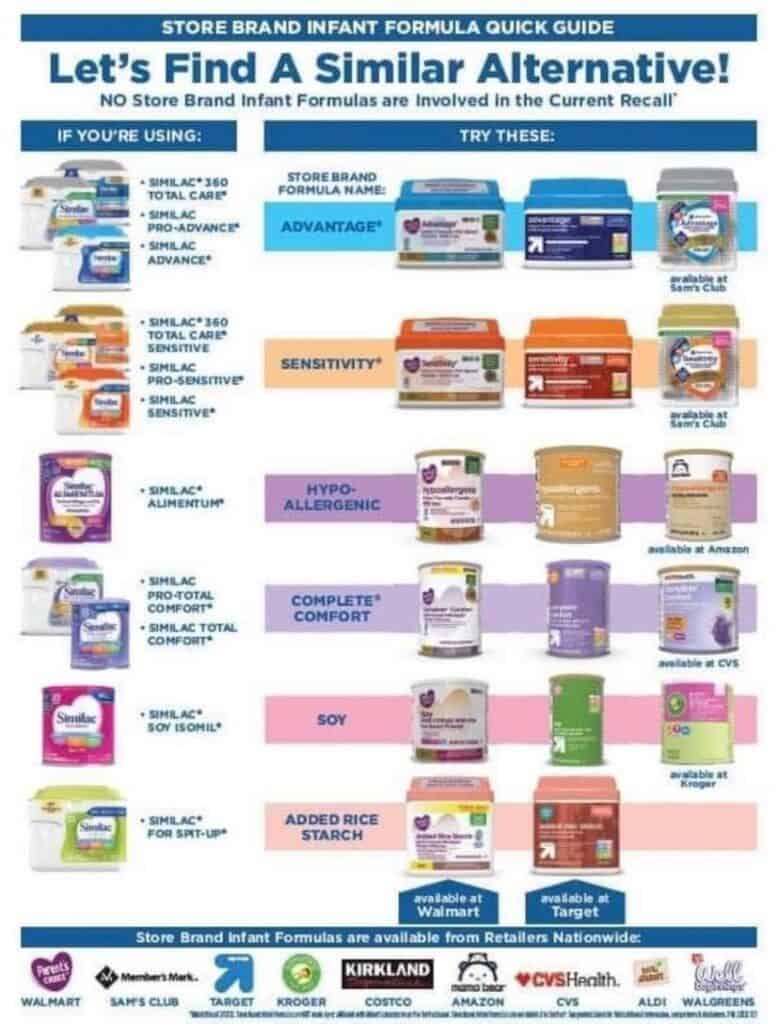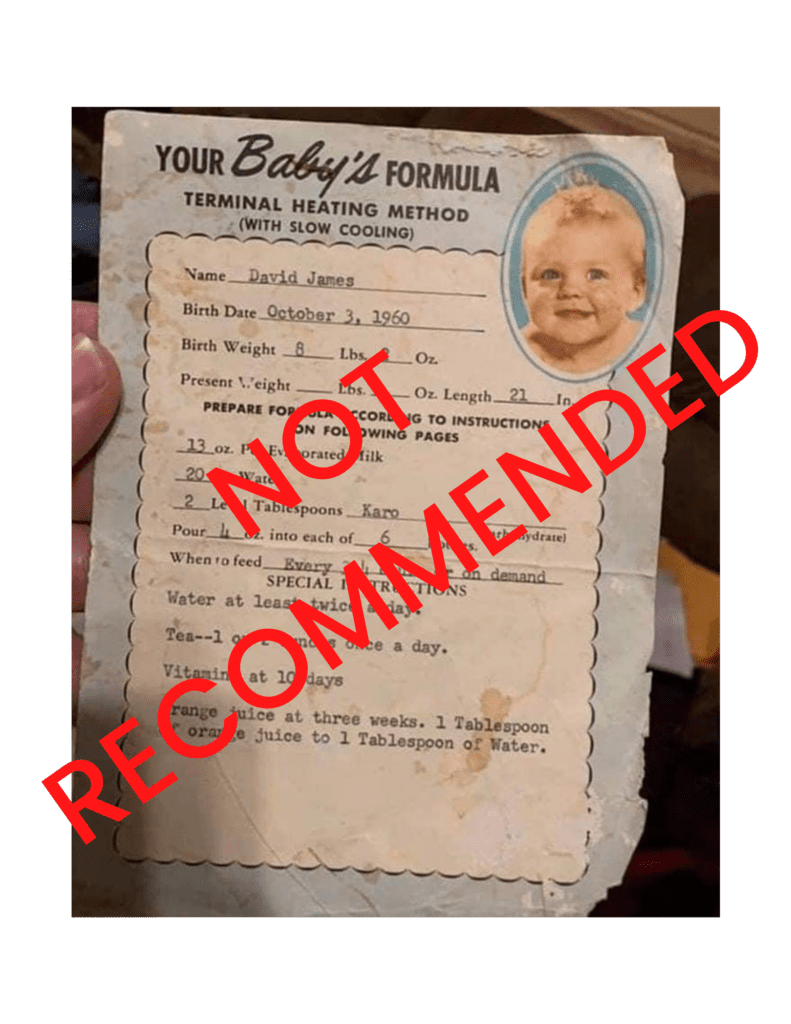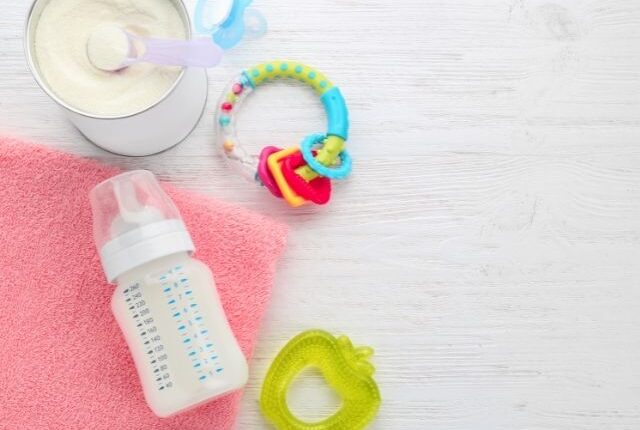The recent shortage of infant formula is a stress no mom should have to deal with. I am thankful to have a circle of superwomen friends! When I asked my friend, Paige Sochovka, a certified lactation consultant about sharing some tips with my audience, she didn’t hesitate and the resultant information is invaluable! Hope this helps someone ease the stress of this crazy time! Here’s what Paige had to say!
As a lactation consultant my heart is breaking for all the families struggling to feed their babies.
This shortage has caused a major crisis for many families in America. All lactation consultants are deeply educated on all infant feeding practices including formula feeding. It is our job to support all families and their individual goals, no matter what they are.

For some families breastfeeding truly does not work out, maybe it was a personal choice, or there was a societal, economical, medical, or financial barrier preventing them from reaching their breastfeeding goals. Now these families who rely on formula are suddenly being shamed for not breastfeeding and therefore are being shamed for struggling.
Now is not the time for shaming or pointing fingers, it is the time for support and compassion.
Breastfeeding and Milk Supply Solutions
Here is some advice from an international board certified lactation consult who works regularly with both breastfeeding and formula feeding families.

1. Increasing your supply
If you are still partially breastfeeding, it would be reasonable and fairly easy to increase your milk supply to a higher partial supply or even a full milk supply. Work with a lactation consultant to guide you towards this goal.
It may be beneficial to find an advanced lactation professional such as an IBCLC if you have tried many methods to increase your supply that have not worked. For a lot of women who cannot establish a full breast milk supply there is usually an underlying reason as to why: thyroid conditions, diabetes, retained placenta, etc.
Working with an advanced IBCLC will ensure you have someone with deep clinical knowledge to help you uncover any underlying issues and guide you to finding solutions that will result in the return of your milk supply.
Related: Nursing and Pumping: Building Supply
2. Consider relactating
If you have recently stopped breastfeeding within the last 8 weeks, it may be an idea to consider relactating. This is the easiest period to try relactating. While this will not be an immediate fix, it can be a long term solution. Work with an IBCLC as this can be a complex process.
3. Consider inducing lactation
If you have never lactated or it has been longer than 2 months since you last breastfed, inducing or relactating can also be an option. Again this will not be an immediate solution, but can hold answers in the long run. Mamas who choose to try this may have a harder time achieving a full supply, but it is possible. If you are willing to put in consistent effort and work with an IBCLC this may be a reasonable option for you.
4. Milk sharing
Informal or formal milk sharing may also be an option depending on your location. The biggest risk for informal milk sharing is there may be medication transference to the milk if the donating mom is taking certain medications.
Additionally, some bacteria and viruses can be transmitted such as HIV and cytomegalovirus. If you choose to do an informal milk share, make sure it is someone you know and trust. If you have a local milk bank, reach out to them with your concerns of not being able to access milk to feed your infant and see if they have resources for you.

Finding Formula
If any of the above options are unavailable here are a few ways that you can find formula.
1. Use a similar formula
Follow the chart below for guidance on choosing a formula option similar to the ones you use!

2. Check with local helping organizations
Contact these resources if supplies are unavailable and ask if they have any formula:
- Pediatric offices
- OBGYN offices
- Hospitals
- Food pantries
- Local churches
3. Check with your pediatrician or insurance company
If your baby is on a special formula due to medical conditions or food sensitivities, have a conversation on how to locate these formulas with you pediatrician and or your insurance company. Tricare will cover special formulas for infants that cannot tolerate regular formulas that are “ not commercially available.” This includes Elecare, Neocate, and PurAmino. This coverage will come from a DME store that’s in network with Tricare. You must first have a prescription for this from your pediatrician to get coverage.
For Military Mamas, Related: Tricare and Baby Formula
4. Check with non-US brands
If you can not locate your usual American formula, the next best step would be to try to locate a different kind of formula like the well known HIPP Combiotik or Holle in Europe. This brand is not FDA regulated for consumption in the US. These formulas meet the European standard for infant feeding but has not gone
through the process for American standards, therefore they do not hold the FDA’s approval.
As someone who currently lives in Germany and works with many families using these brands of formula, I can say it is safe. The most common nutritional differences, is that EU formula has less iron but significantly more DHA in their formula. The rest of the nutrition differences are minute. Prior to this shortage many families chose to import EU formulas as they had less additives and more organic ingredients.
Related: How to source different formula brands
5. Look for goat or plant based formula
Next best option would be to use a goat’s or plant based formula. I would not recommend these for long term use there is still a lot that is unknown about the long term effects with goat’s or plant based formulas. We know that they nutritional composition for the macro nutrients is similar, but we do not know much about the micronutrients, or how these alternative formulas affect the gut microbiome and digestive system long term. But this is a much safer choice compared to diluting formula or using homemade formula.
Another possible short term idea would be to use toddler formula if your baby is close to 1 year of age. This should not be used long term, but can get you and your baby by in a pinch, while still being safe.

***A Few Cautions
It is incredibly important that families DO NOT dilute their formula to make it stretch or attempt to make a homemade formula recipe. These feeding practices can have disastrous effects on your baby. You may hear the stories “I did it and my baby is just fine and perfectly healthy.” That was the mentality of our parents’ generation. We know better, we need to do better.
Heres what you need to know:
-Water intoxication is a real thing for infants, and it becomes a high risk when you are adding too much water to your baby’s formula. Infant water intoxications can lead to seizures.
-Diluting formula also causes electrolyte imbalances, primarily with their sodium levels. This can cause severe swelling and poor absorption of the nutrients in the formula. Over time this feeding practice can cause poor weight gain, developmental delays, and poor growth.
Homemade Baby Formula History
You may see a few homemade recipes circling around particularly one photo of instructions shared from the 1960’s and from the Weston A Price Foundations. These recipes are incredibly dangerous. Back in the 1900’s 1 in 3 infants died who were fed homemade formula.


In both of these recipes circling around they have some odd ingredients. Specifically cod oil and orange juice. These ingredients were added to the recipe specifically to try to prevent diseases in that commonly occurs from a lack of vitamins in these recipes. That alone should be a huge warning to all parents right there.
Due to the high death toll in infants who were fed homemade formula our government took action to reduce these deaths, by passing the Infant Formula Act in 1980. This policy set regulations on ingredients, ratios, and nutritional compositions in infant formulas.
This is finally when the death tolls in infants started declining from these FDA regulations. Using homemade infant formula especially those with raw milk or evaporated milk is reverting back to before those regulations were in place, this is the time where 1 in 3 babies died before their first birthdays.
I urge for the safety of your child, do not give your baby a homemade formula, it is absolutely not safe.
Written by Paige Sochovka, IBCLC
Learn More about Paige at her work at Nurturing Lactation or Email her directly at [email protected]

